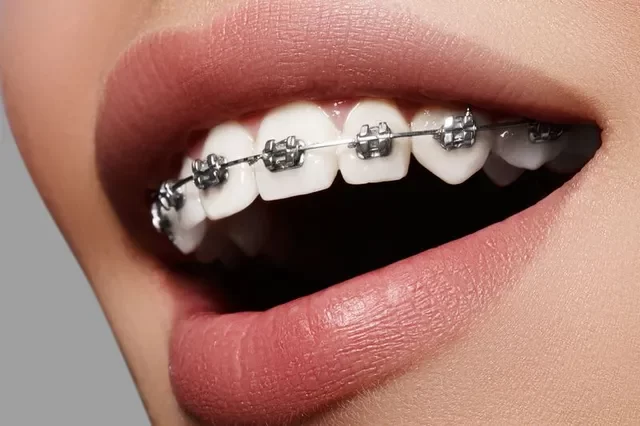
Oral Health for People with Braces: Essential Tips and Care
- 1. Why Oral Health is Crucial for People with Braces
- 2. Common Challenges in Braces Care
- 3. Top Tips for Maintaining Oral Health with Braces
- 4. How to Handle Emergency Dental Situations with Braces
- 5. Product Recommendations for People with Braces
1. Why Oral Health is Crucial for People with Braces
Maintaining excellent oral health is essential for everyone, but it's particularly critical for people with braces. Braces create additional challenges in keeping your teeth and gums clean, as food and plaque can accumulate around the brackets and wires. If left unchecked, this can lead to gum disease, cavities, and stains on your teeth. Braces not only help straighten teeth but also enhance your long-term oral health by improving bite alignment. However, this process requires diligent care to avoid complications. Regular brushing, flossing, and dental check-ups are all part of the strategy for ensuring healthy teeth throughout the treatment.
2. Common Challenges in Braces Care
While wearing braces, people often face a range of oral health challenges. Some of the most common issues include:
- Food Traps: The brackets and wires of braces can trap food, making it harder to clean your teeth properly. This can lead to the buildup of plaque, which is a leading cause of cavities and gum disease.
- Difficulty with Flossing: Flossing with braces can be difficult due to the wires and brackets. Traditional floss may not reach the areas between your teeth, which means specialized tools are often needed for effective flossing.
- Increased Risk of Gum Inflammation: Braces can irritate your gums, leading to inflammation and swelling. If not addressed properly, this can result in periodontal disease, which affects the gums and bone around your teeth.
- Staining and Discoloration: Braces can make it harder to clean your teeth thoroughly, leading to staining around the brackets. This can be particularly noticeable after the braces are removed, making good oral hygiene even more important during the treatment process.
3. Top Tips for Maintaining Oral Health with Braces
Taking care of your oral health while wearing braces requires more effort than with traditional dental care, but it is entirely achievable with the right habits. Here are some of the best tips for maintaining your oral health with braces:
- Brush After Every Meal: It’s crucial to brush your teeth after every meal to remove food particles and plaque around the brackets. Use a soft-bristled toothbrush and fluoride toothpaste to clean your teeth gently but thoroughly.
- Use Interdental Brushes: Interdental brushes are small brushes that help you clean between the wires and brackets of your braces. These tools are designed to reach areas where traditional toothbrushes can’t and can be very effective in removing trapped food.
- Floss with a Floss Threader: Traditional floss can be challenging to use with braces, but a floss threader makes it easier to get between the teeth and around the braces. This is an important step to remove plaque buildup in places that brushing alone can't reach.
- Rinse with Mouthwash: Using an antibacterial mouthwash can help reduce the risk of plaque buildup and gingivitis. Mouthwash can also help clean areas that are difficult to reach with a toothbrush and provide a fresh feeling.
- Avoid Certain Foods: Some foods are best avoided while wearing braces. Sticky foods, hard candies, and tough meats can damage your braces or get stuck in your wires. Additionally, sugary foods can contribute to plaque buildup and increase the risk of cavities.
4. How to Handle Emergency Dental Situations with Braces
While wearing braces, emergencies can occur. From broken wires to loose brackets, knowing how to handle these situations is key to keeping your treatment on track. Here’s how to address common orthodontic emergencies:
- Loose Brackets: If a bracket becomes loose or detached, contact your orthodontist as soon as possible. In the meantime, use orthodontic wax to cover the bracket to avoid irritation to your mouth.
- Broken Wires: If a wire breaks or becomes loose, you may need to use tweezers to reposition it temporarily. If it’s causing pain or injury, place a small amount of orthodontic wax on the wire until you can see your orthodontist.
- Discomfort or Irritation: It's normal to experience some discomfort after adjustments. If irritation occurs, applying orthodontic wax to the brackets can help alleviate pain. Rinsing with warm saltwater can also soothe any mouth sores caused by your braces.
5. Product Recommendations for People with Braces
Several products can make your oral care routine more effective while wearing braces. Consider adding these to your toolkit:
- Orthodontic Toothbrushes: These toothbrushes are designed specifically for braces. They have bristles that can reach around the brackets and wires, ensuring a more thorough clean.
- Floss Threaders and Superfloss: These tools are designed for people with braces and make it much easier to floss between teeth and around wires. Superfloss is especially effective in cleaning hard-to-reach areas.
- Orthodontic Wax: This wax is essential for protecting your gums from the irritation caused by the brackets and wires. Always keep a small container with you in case of emergencies.
- Antibacterial Mouthwash: An antibacterial mouthwash can help reduce plaque buildup, minimize the risk of gum disease, and keep your mouth feeling fresh between brushing.
For more expert advice and recommendations on oral health for people with braces, visit Dentistry Toothtruth.

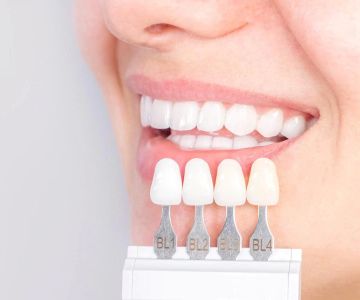

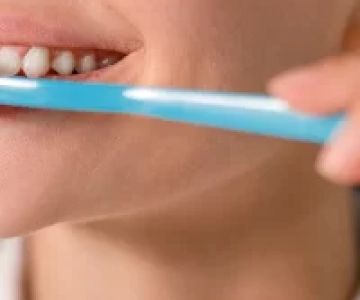
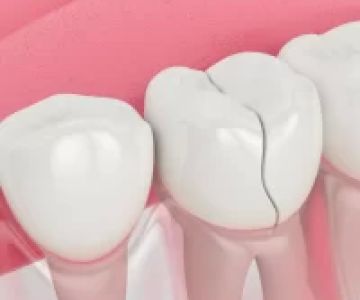
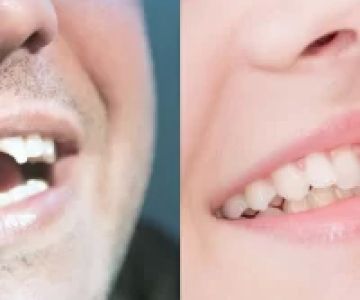
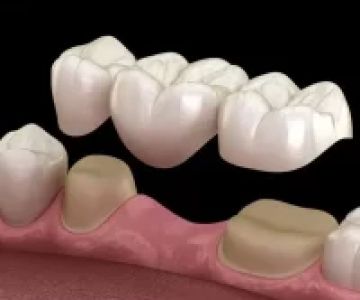
 Peach Tree Dental4.0 (330 review)
Peach Tree Dental4.0 (330 review)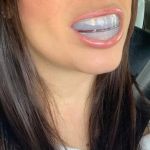 Rockstar White Teeth Whitening5.0 (5 review)
Rockstar White Teeth Whitening5.0 (5 review) Art & Science Family Dentistry5.0 (202 review)
Art & Science Family Dentistry5.0 (202 review) Circle Pines Dental: Dr. John Stentz5.0 (2 review)
Circle Pines Dental: Dr. John Stentz5.0 (2 review) BGW Dental Group4.0 (292 review)
BGW Dental Group4.0 (292 review) Pristine Dentistry: Akhtar Judy DDS4.0 (35 review)
Pristine Dentistry: Akhtar Judy DDS4.0 (35 review) The Importance of Oral Health Education During Pregnancy for a Healthy Pregnancy
The Importance of Oral Health Education During Pregnancy for a Healthy Pregnancy Best Tips for Brushing Your Teeth Properly for Healthy Gums: Essential Techniques for Oral Health
Best Tips for Brushing Your Teeth Properly for Healthy Gums: Essential Techniques for Oral Health Why Skipping Dental Checkups Can Lead to Bigger Oral Health Problems
Why Skipping Dental Checkups Can Lead to Bigger Oral Health Problems Advantages of Porcelain Dental Restorations
Advantages of Porcelain Dental Restorations How Can Diabetes Cause Tooth and Gum Problems? Preventing and Managing Oral Health Issues
How Can Diabetes Cause Tooth and Gum Problems? Preventing and Managing Oral Health Issues Healthy Habits for Promoting Good Oral Health and Hygiene: Tips for a Healthy Smile
Healthy Habits for Promoting Good Oral Health and Hygiene: Tips for a Healthy Smile